Cinnamon is a versatile spice that adds warmth and depth to various beverages, making them comforting and flavorful. From hot beverages like tea and coffee to cold drinks, cinnamon has been a popular ingredient worldwide. This article will explore the history, cultural significance, health benefits, and various uses of cinnamon in beverages, covering a wide range of hot and cold drink recipes.
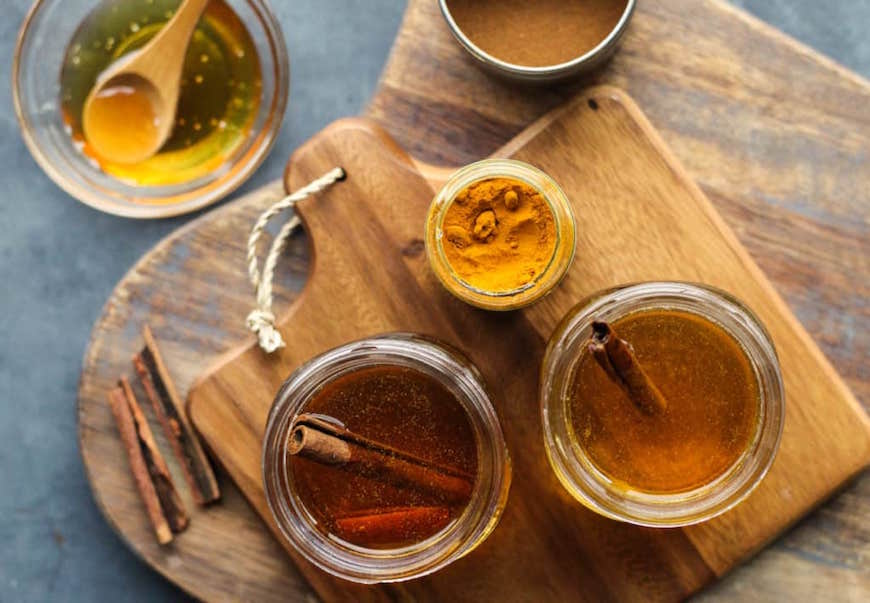
Cinnamon, derived from the inner bark of trees belonging to the Cinnamomum genus, has a rich history dating back to ancient civilizations like Egypt and China. It was highly prized for its aromatic, medicinal, and culinary properties. Cinnamon’s distinct flavor is due to its main component, cinnamaldehyde, which also accounts for its antioxidant and anti-inflammatory properties.
The spice is known to aid digestion, regulate blood sugar levels, and possess antimicrobial effects. It is used worldwide in various cuisines, beverages, and traditional medicine, making it a cherished and versatile ingredient throughout history and into modern times.
Historical Significance of Cinnamon in Alcoholic Beverages
Cinnamon’s association with alcoholic beverages dates back centuries, with evidence of its use in various ancient civilizations. Cinnamon was employed in spiced wines and meads in Egypt as early as 2,000 BCE.
In the Mediterranean, Greeks and Romans incorporated cinnamon into their wines and concoctions as a flavoring agent and for its perceived medicinal properties.
The spice’s widespread popularity continued through the Middle Ages and the Renaissance, making its way into various beverages such as mulled wine and spiced ales.
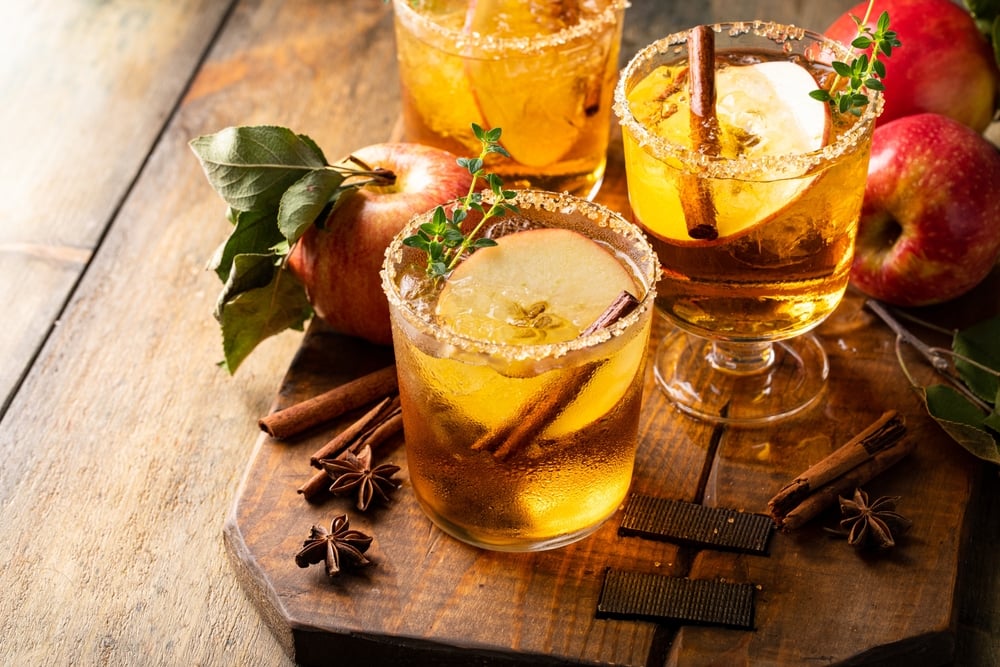
Cinnamon holds historical significance in alcoholic beverages, dating back to ancient civilizations. Its aromatic and spicy flavor made it a prized ingredient in early wine, mead, and beer recipes.
The ancient Egyptians, Greeks, and Romans used cinnamon to enhance their fermented drinks’ taste and medicinal properties. Cinnamon’s scarcity in Europe during the Middle Ages made it a symbol of wealth and luxury in alcoholic concoctions reserved for the elite.
During the age of exploration, cinnamon was sought after as a valuable spice and was often traded for spirits. Its appeal in alcoholic beverages reflects its cultural importance and enduring allure throughout history.
Types of Cinnamon Used in Alcoholic Beverages
There are several types of cinnamon used in alcoholic beverages, each offering unique flavors and characteristics:
- Ceylon Cinnamon (Cinnamomum verum or “true cinnamon”): Known for its delicate and sweet flavor, it is often used in premium alcoholic beverages to impart a subtle and refined taste.
- Cassia Cinnamon (Cinnamomum cassia): This is the market’s most common type of cinnamon. It has a stronger and bolder flavor than Ceylon cinnamon, making it ideal for providing robust spiciness to certain alcoholic drinks.
- Saigon Cinnamon (Cinnamomum Loureiro): Also called Vietnamese cinnamon, it has a more intense and fiery flavor than both Ceylon and Cassia varieties, making it suitable for adding a bold kick to alcoholic cocktails and infused spirits.
- Indonesian Cinnamon (Cinnamomum burmannii): This cinnamon tastes milder than Cassia but slightly bitter. It is commonly used in the production of liqueurs and spiced spirits.
Each type of cinnamon adds its distinct profile to alcoholic beverages, allowing bartenders and distillers to create diverse and enticing flavor combinations.
Cinnamon in Cocktails
Cinnamon plays a vital role in cocktails, infusing them with its warm and aromatic essence. Bartenders frequently use cinnamon in various forms to add complexity and depth to drinks. Ground cinnamon or syrup adds a subtle spiciness to classic cocktails like the Old Fashioned or Mulled Wine.
Cinnamon sticks are often employed as garnishes, providing visual appeal and a hint of fragrance. Additionally, cinnamon pairs exceptionally well with other flavors, such as apple, citrus, and chocolate, making it a versatile ingredient in mixology. Its presence in cocktails enhances the overall drinking experience, delighting the senses with its delightful taste and aroma.
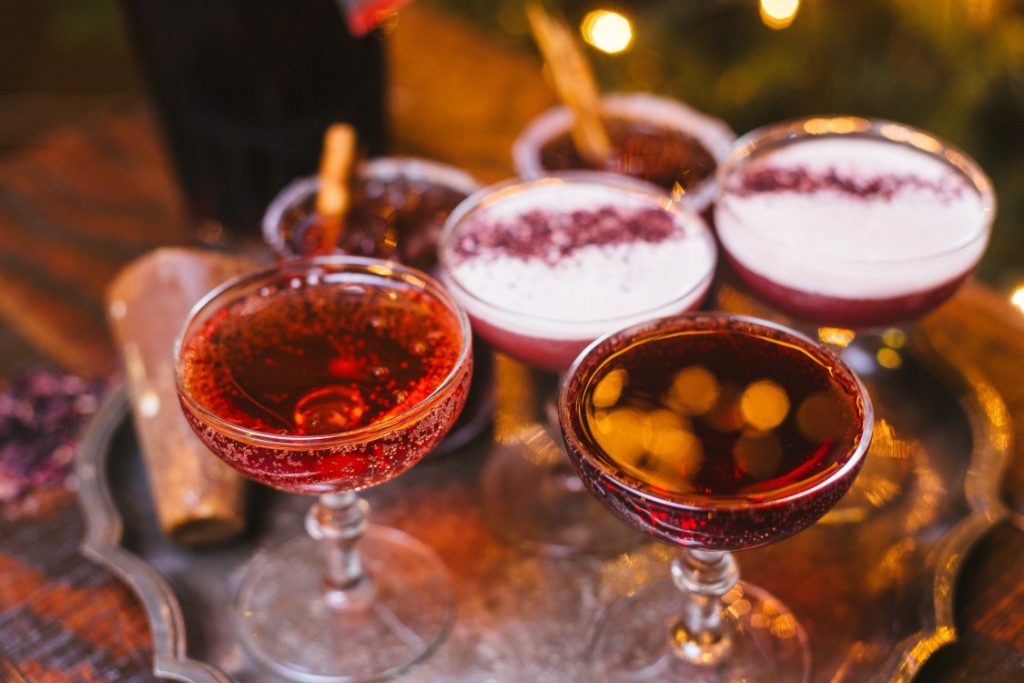
Cinnamon is a versatile spice that can be incorporated into various cocktails as an infusion, garnish, or syrup. One famous cinnamon-infused cocktail is the “Cinnamon Old Fashioned,” cinnamon sticks are steeped in bourbon or rye whiskey to impart their flavor. Another classic cocktail featuring cinnamon is the “Hot Buttered Rum,” made with spiced rum, hot water, butter, and a cinnamon stick.
The Cinnamon Old Fashioned is a delightful twist on the classic cocktail. It involves muddling a cinnamon stick with sugar and bitters before adding whiskey and ice. The result is a rich and spiced version of the beloved Old Fashioned, perfect for those who enjoy a warming, flavorful drink.
Hot Buttered Rum is a delicious and comforting winter cocktail. It typically consists of dark rum, hot water or cider, a blend of spices like cinnamon, nutmeg, and cloves, and a dollop of butter, creating a creamy and flavorful drink perfect for chilly evenings by the fireplace.
Cinnamon in Liqueurs
Cinnamon is prominent in various liqueurs, enhancing their flavors with its distinct spiciness and warmth. It is commonly used as an essential ingredient in cinnamon schnapps or cinnamon liqueurs. The infusion of cinnamon into the alcohol base adds a delightful complexity, making these liqueurs ideal for sipping neat or as a base for cocktails.
Cinnamon liqueurs often feature complementary flavors like vanilla, caramel, or citrus to create a well-rounded taste profile. Whether enjoyed on its own or in mixed drinks, cinnamon liqueurs offer a comforting and aromatic experience, appealing to those who appreciate a touch of spice in their libations.
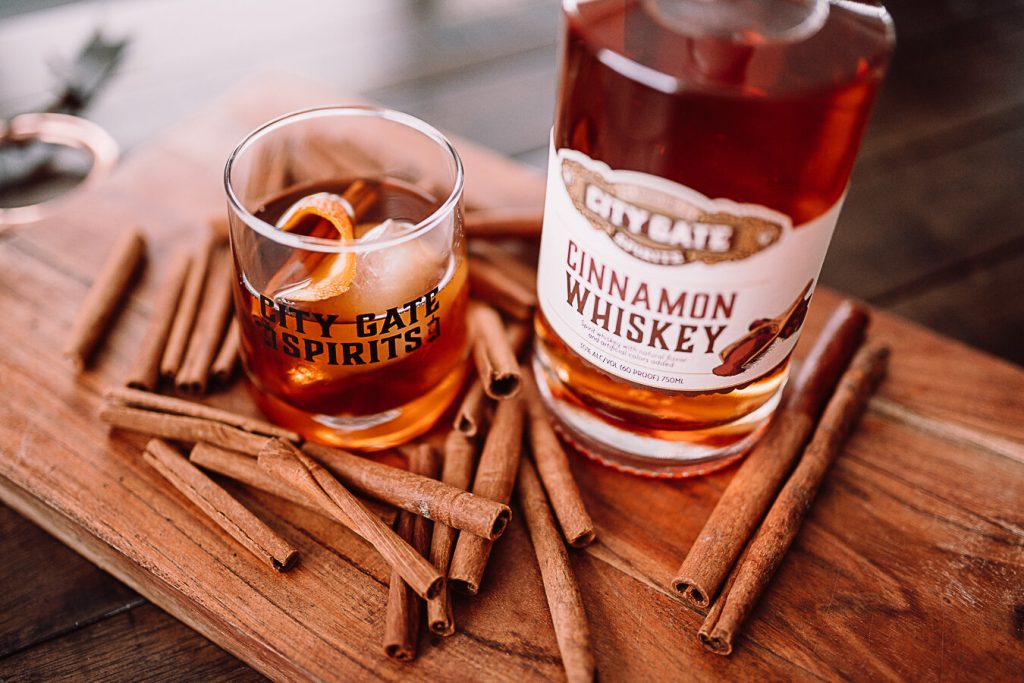
Here are some of the types of cinnamon liqueurs.
Several types of cinnamon liqueurs are available, each with its unique flavor profile and production methods. Some popular types include:
- Cinnamon Schnapps: A sweet and strong liqueur made by steeping cinnamon in a high-proof alcohol, often vodka or grain alcohol. It has a pronounced cinnamon flavor and is commonly used in cocktails.
- Cinnamon Whiskey Liqueur: This type of liqueur combines the spiciness of cinnamon with the smoothness of whiskey. It is a famous shot choice and can be used in various cocktails.
- Cinnamon Spice Liqueur: These liqueurs usually feature a blend of spices, with cinnamon being a prominent component. They may include spices like nutmeg, cloves, and allspice, creating a rich and flavorful drink.
- Cinnamon Coffee Liqueur: Some coffee liqueurs also incorporate cinnamon, adding an extra layer of complexity to the coffee-flavored spirit.
- Cinnamon Cream Liqueur: Cream liqueurs often feature cinnamon as an additional flavor, creating a creamy and spiced beverage that can be enjoyed on its own or as part of various cocktails and desserts.
These cinnamon liqueurs provide diverse taste experiences, from strong and fiery to smooth and creamy, catering to different preferences and serving occasions.
Mulled Wines and Ciders
Mulled wines and ciders are warm and comforting beverages typically enjoyed during the colder months, especially around the holiday season. They are made by heating wine or apple cider with spices and sometimes sweeteners. Cinnamon is an essential spice used in these concoctions, imparting its warm and aromatic flavor to the drink. Other common spices include cloves, star anise, allspice, and orange peel.
To make mulled wine, red wine is gently heated with spices and often mixed with sugar or honey to sweeten it. Mulled cider follows a similar process but uses apple cider as the base instead of wine. The heating process allows the flavors of the spices to infuse into the drink, creating a delightful and festive taste.
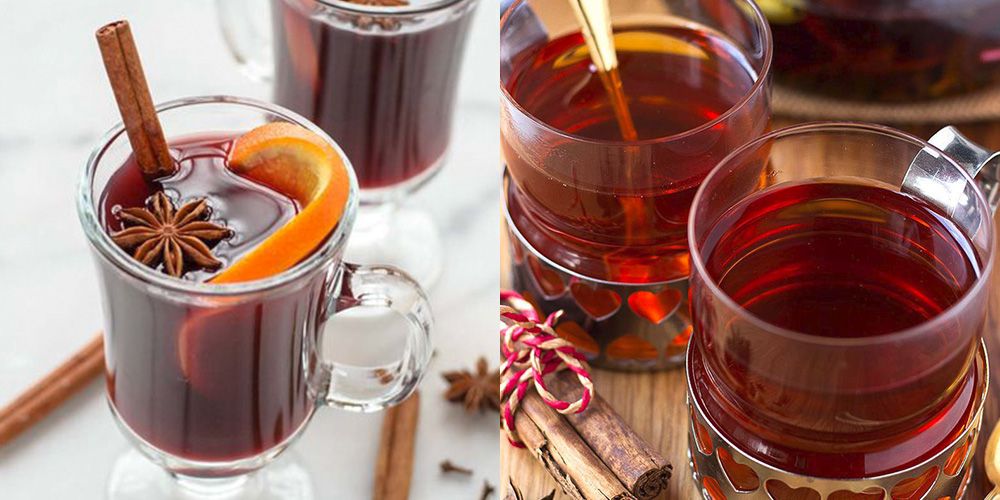
Mulled wines and ciders are perfect for gatherings and holiday celebrations, as they taste delicious and fill the air with a wonderful aroma that adds to the overall festive ambiance.
Homemade Cinnamon-Infused Spirits
Many enthusiasts and mixologists experiment with making their cinnamon-infused spirits at home. The process involves steeping cinnamon sticks in the base spirit of choice, such as vodka or rum, for a certain period until the desired flavor is achieved. The resulting infused spirits can be used in various cocktails and mixed drinks.
Making homemade cinnamon-infused spirits is a simple and rewarding process that allows you to customize the flavor to your liking. Here’s an essential guide to creating your cinnamon-infused spirits:
Ingredients:
- Spirit of your choice (vodka, rum, bourbon, etc.)
- Cinnamon sticks (Ceylon or Cassia, depending on your preference)
- Airtight glass container or bottle
Instructions:
- Select the spirit: Choose a base spirit that complements the flavor of cinnamon well. A vodka is a neutral option, while rum or bourbon can add complexity.
- Prepare the cinnamon: Break cinnamon sticks into smaller pieces to increase the surface area for infusion. You can use a mortar and pestle to crush them slightly if desired.
- Combine ingredients: Place the cinnamon sticks into the glass container and pour the spirit over them until the cinnamon is fully submerged.
- Seal and store: Close the container tightly with a lid or cork. Store the container in a cool, dark place, away from direct sunlight, for at least 3-5 days. You can taste the infusion daily to monitor the flavor intensity.
- Strain and rebottle: After achieving the desired flavor, strain the infused spirit through a fine mesh strainer or coffee filter to remove the cinnamon pieces. Transfer the cinnamon-infused spirit to a clean bottle for storage and serving.

The cinnamon-infused spirit can be enjoyed neat, on the rocks, or used in cocktails to add a warm and spicy twist to your favorite drinks. Remember to label the bottle with the infusion date to keep track of its freshness. Enjoy your homemade creation responsibly!
Conclusion
Cinnamon in beverages represents more than just a flavor; it embodies the essence of tradition, creativity, and the pleasure of sharing a drink with friends and loved ones. Its remarkable journey through history and its continued relevance in modern mixology remind us of the power of spices to shape our culinary and cultural experiences, enriching our lives one sip at a time.
So, the next time you savor a cocktail or liqueur infused with cinnamon, take a moment to appreciate the centuries of heritage encapsulated in that slight, aromatic spice. Cheers to the enduring allure of cinnamon in the world of beverages!
